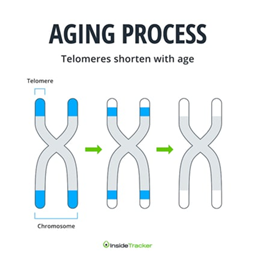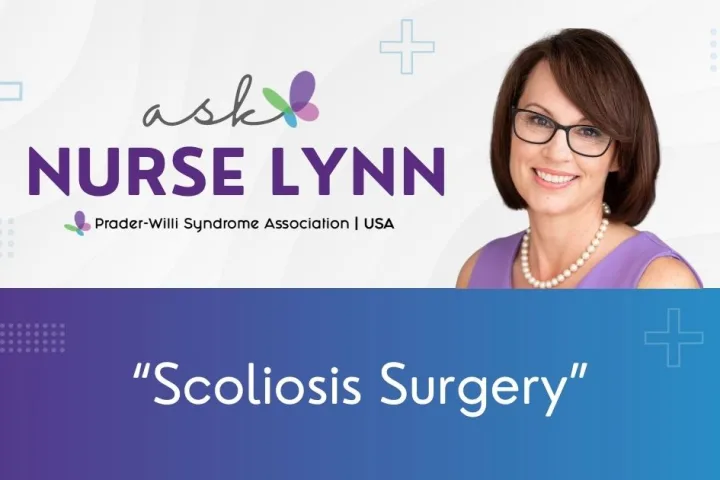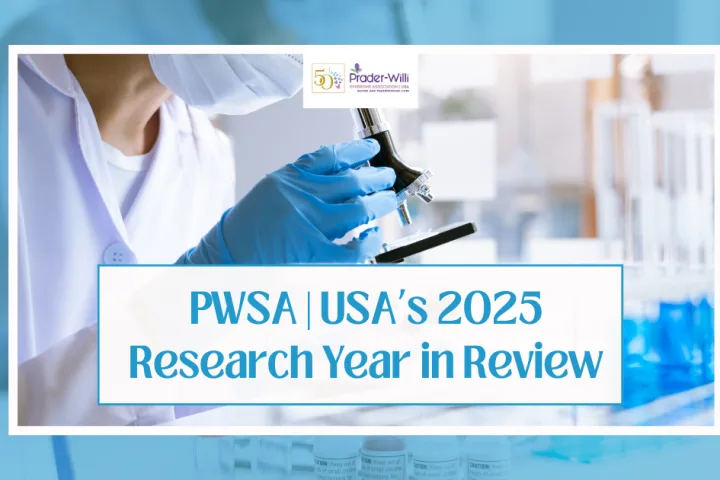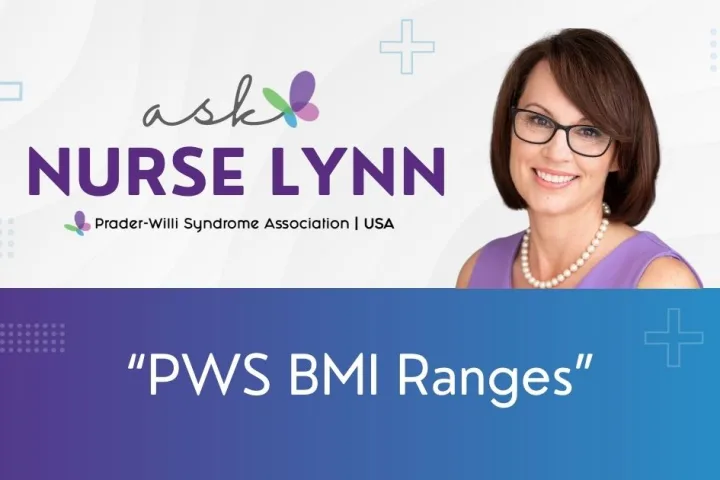Compiled by Barb Dorn, RN, BSN
People with PWS are growing old. Many of this may be the result of our increased knowledge in supporting and caring for the person with PWS. We have learned to replenish hormone deficiencies and manage their diet and food security. We have identified critical health issues and know that their body works different, so early diagnosis and treatment of problems can be expedited. We are learning more every day. Research has begun but, we still need more. The following is a summary of published research on aging.
Accelerated Biological Aging
In 2012, a group of researchers from the Netherlands (Sinema et al) studied twelve persons with PWS over the age of 50 years old. Cardiovascular diseases, diabetes, dermatological, and orthopedic problems were common, physical complaints in older people with PWS. Functioning in activities of daily living, psychological functioning, physical functions, and care dependence were substantially worse in the older age group (50+) compared to the control group (18-49 years). Seven out of eight persons with mUPD had a history of psychiatric illness. Behavioral problems were observed in the older age group. Given the combination of age-related physical morbidity, physical appearance, behavioral and psychiatric problems, and functional decline in the cohort, it was hypothesized that premature aging occurs in PWS.
In 2019, researcher in the UK, (Azor, Cole, Holland et all), found an increased brain age in adults with PWS. Individuals with PWS had a brain age that more closely resembled healthy adults on average 8.74 years older than their chronological age. Most of PWS individuals in the study showed an increased predicted brain age. However, any variability in brain-PAD scores in the PWS group could not be explained by medication use, including growth or sex hormones or psychotropic drugs, sex or BMI. Participants with PWS showed signs of premature brain aging and early onset atrophy rather than a fundamental arrest of brain development.

Researchers in the Netherlands in 2020 investigated the cause of premature aging, something that has been reported. Donze et all, found that young adults with PWS had a significantly shorter median Telomere Leukocyte Length (TLL). A TLL is a DNA Protein structure found in all of us. It plays a central role in cell survival and aging. As we age, the length of these telomeres shortens. These shorter telomeres might play a role in premature aging in PWS. Accelerated biological aging could explain the increase mortality rate and increased risk of developing age-associated diseases.
Dementia
Many persons question the prevalence of dementia is adults with PWS. There are people who are being diagnosed with this disease, however the incidence does not appear to be overwhelming. Unlike Down’s syndrome, there does not seem to be a genetic link to dementia. Family history and other unknown influences may be impacting the aging adult with PWS.
In 2010, Sinema et al published a case study about a 58-year-old who suffered from dementia. She had a history of psychosis and bi-polar disorder. She began to exhibit a decline in communication, ambulation and activities of daily living around the age of 40.
One study done in the UK in 2015 looked at the mortality rate of in 26 adults with PWS. They found that the mortality rate of people with PWS was declining. They also found that a subgroup of people with PWS who were female, had UPD or disomic region changes and a history of psychosis, may be at a greater risk of dementia. Of the 26 adults with PWS studied, 22 had no signs of dementia; 4 did. All were female with UPD. (Whittington, Holland and Webb).
Early aging and some reports of dementia lead the topics of aging research. More needs to be done to address the prevalence in health issues as well as appropriate management strategies.
Bibliography
- Sinnema M, Schrander-Stumpel CT, Maaskant MA, Boer H, Curfs LM. Aging in Prader-Willi syndrome: twelve persons over the age of 50 years. Am J Med Genet A. 2012 Jun;158A(6):1326-36. doi: 10.1002/ajmg.a.35333. Epub 2012 May 14. PMID: 22585395
- Azor AM, Cole JH, Holland AJ, Dumba M, Patel MC, Sadlon A, Goldstone AP, Manning KE. Increased brain age in adults with Prader-Willi syndrome. Neuroimage Clin. 2019;21:101664. doi: 10.1016/j.nicl.2019.101664. Epub 2019 Jan 10. PMID: 30658944; PMCID: PMC6412082.
- Donze SH, Codd V, Damen L, Goedegebuure WJ, Denniff M, Samani NJ, van der Velden JAEM, Hokken-Koelega ACS. Evidence for Accelerated Biological Aging in Young Adults with Prader-Willi Syndrome. J Clin Endocrinol Metab. 2020 Jun 1;105(6):2053–9. doi: 10.1210/clinem/dgz180. PMID: 31689713; PMCID: PMC7150612.
- Sinnema M, Schrander-Stumpel CT, Verheij HE, Meeuwsen M, Maaskant MA, Curfs LM. Dementia in a woman with Prader-Willi syndrome. Eur J Med Genet. 2010 May-Jun;53(3):145-8. doi: 10.1016/j.ejmg.2010.02.006. Epub 2010 Feb 26. PMID: 20219703.
- Whittington JE, Holland AJ, Webb T. Ageing in people with Prader-Willi syndrome: mortality in the UK population cohort and morbidity in an older sample of adults. Psychol Med. 2015 Feb;45(3):615-21. doi: 10.1017/S0033291714001755. Epub 2014 Aug 4. PMID: 25088280.
Watch: PWS Aging Research and Health Updates
Share this!





 Perry A. Zirkel has written more than 1,500 publications on various aspects of school law, with an emphasis on legal issues in special education. He writes a regular column for NAESP’s Principal magazine and NASP’s Communiqué newsletter, and he did so previously for Phi Delta Kappan and Teaching Exceptional Children.
Perry A. Zirkel has written more than 1,500 publications on various aspects of school law, with an emphasis on legal issues in special education. He writes a regular column for NAESP’s Principal magazine and NASP’s Communiqué newsletter, and he did so previously for Phi Delta Kappan and Teaching Exceptional Children. Jennifer Bolander has been serving as a Special Education Specialist for PWSA (USA) since October of 2015. She is a graduate of John Carroll University and lives in Ohio with her husband Brad and daughters Kate (17), and Sophia (13) who was born with PWS.
Jennifer Bolander has been serving as a Special Education Specialist for PWSA (USA) since October of 2015. She is a graduate of John Carroll University and lives in Ohio with her husband Brad and daughters Kate (17), and Sophia (13) who was born with PWS. Dr. Amy McTighe is the PWS Program Manager and Inpatient Teacher at the Center for Prader-Willi Syndrome at the Children’s Institute of Pittsburgh. She graduated from Duquesne University receiving her Bachelor’s and Master’s degree in Education with a focus on elementary education, special education, and language arts.
Dr. Amy McTighe is the PWS Program Manager and Inpatient Teacher at the Center for Prader-Willi Syndrome at the Children’s Institute of Pittsburgh. She graduated from Duquesne University receiving her Bachelor’s and Master’s degree in Education with a focus on elementary education, special education, and language arts. Evan has worked with the Prader-Willi Syndrome Association (USA) since 2007 primarily as a Crisis Intervention and Family Support Counselor. Evans works with parents and schools to foster strong collaborative relationships and appropriate educational environments for students with PWS.
Evan has worked with the Prader-Willi Syndrome Association (USA) since 2007 primarily as a Crisis Intervention and Family Support Counselor. Evans works with parents and schools to foster strong collaborative relationships and appropriate educational environments for students with PWS. Staci Zimmerman works for Prader-Willi Syndrome Association of Colorado as an Individualized Education Program (IEP) consultant. Staci collaborates with the PWS multi-disciplinary clinic at the Children’s Hospital in Denver supporting families and school districts around the United States with their child’s Individual Educational Plan.
Staci Zimmerman works for Prader-Willi Syndrome Association of Colorado as an Individualized Education Program (IEP) consultant. Staci collaborates with the PWS multi-disciplinary clinic at the Children’s Hospital in Denver supporting families and school districts around the United States with their child’s Individual Educational Plan. Founded in 2001, SDLC is a non-profit legal services organization dedicated to protecting and advancing the legal rights of people with disabilities throughout the South. It partners with the Southern Poverty Law Center, Protection and Advocacy (P&A) programs, Legal Services Corporations (LSC) and disability organizations on major, systemic disability rights issues involving the Individuals with Disabilities Education Act (IDEA), Americans with Disabilities Act (ADA), and the federal Medicaid Act. Recently in November 2014, Jim retired.
Founded in 2001, SDLC is a non-profit legal services organization dedicated to protecting and advancing the legal rights of people with disabilities throughout the South. It partners with the Southern Poverty Law Center, Protection and Advocacy (P&A) programs, Legal Services Corporations (LSC) and disability organizations on major, systemic disability rights issues involving the Individuals with Disabilities Education Act (IDEA), Americans with Disabilities Act (ADA), and the federal Medicaid Act. Recently in November 2014, Jim retired.